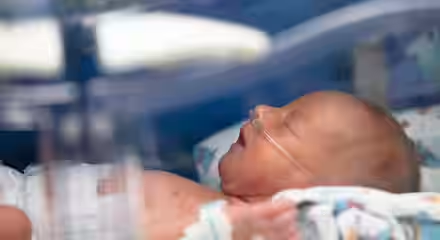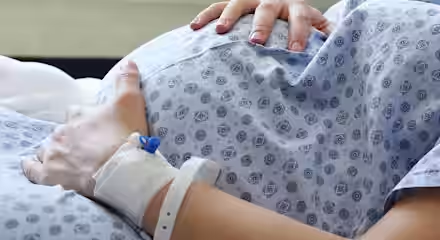Subscribe Today!
Subscribe to the latest Medical Negligence insights
Stay up to date with personalised email alerts with the latest insights from Fieldfisher's lawyers.
SubscribeMedical negligence is where care provided by a medical professional to a patient was below the standard expected, and which has directly caused harm, death or caused a pre-existing condition to become worse. It helps to break it down as follows:
- Duty of Care: Healthcare providers (doctors and hospital staff such as nurses and midwives) owe a duty of care to patients to provide treatment in line with accepted standards.
- Breach of Duty: A breach occurs when a healthcare professional fails to meet the standard of care expected in a given situation.
- Causation: The breach of duty of care has caused the injury/disability/condition that you are taking the case for.
To start investigating whether or not you or a loved one has a medical negligence case, the simplest and best way is to contact our Medical Negligence Solicitors. You do not need to avail of the HSE’s complaints process before engaging with a solicitor. We offer a free initial consultation to hear from you, about what has happened and we can then give an initial opinion on whether or not you could have a case.
For your case to be successful, we must be able to prove that you received negligent treatment which caused an injury or contributed to making an existing condition worse. On your behalf, our Medical Negligence Solicitors will write to the hospital or doctor for a copy of your records, study them and then ask an expert doctor to conduct an analysis, and provide an independent report on whether or not the duty of care owed to you or a loved one, was breached.
There are time limits for starting a case and the rules are not straightforward. The quickest, easiest and safest way to ensure that you are not out of time, is to speak with one of our Medical Negligence Solicitors.
As a general rule, you have two years from the date that you first became aware that your injury was caused by medical negligence, to start a case.
Where a child has been injured, his parent or guardian can start a case on their behalf any time before the child turns 18. When the child reaches the age of 18, they have until their 20th birthday to start a case for injuries they sustained as a child.
If somebody is unable to handle their own affairs due to a brain injury or mental health condition, there is no time limit to their loved one starting a case, on their behalf.
It is worth repeating that if you are concerned about a time limit on your case, the safest and quickest way to find out is to contact our Medical Negligence solicitors.
Injuries due to medical negligence can lead to permanent physical and psychological disabilities, requiring lifelong medical care, rehabilitation, and support. The aim of compensation is to cover these expenses, ensuring that injured patients or their families have the financial resources to provide the best possible care for them or their child. Additionally, compensation will account for pain and suffering, emotional distress, and other non-economic damages associated with the injury.
The amount of compensation you or a loved one deserves for your injuries caused by medical negligence will depend on matters such as:
- The nature and extent of your injury/illness/disability
- Any expenses you’ve incurred or will incur in future on treatment
- Any lost wages past, present or in future because of your injuries/disability
- Your future care needs
If you wish to know the costs involved in investigating a medical negligence claim, and what it costs to take a case for your medical negligence injuries, the best and quickest way to do so, is to call our Medical Negligence Solicitors on +353 1 8280 982 or complete our online inquiry form. One of our Medical Negligence Solicitors will respond as soon as possible to discuss your options. We are mindful that you will have already experienced an injury or loss that has been upsetting or even traumatic and we will work with you, to make this process as easy as possible.
Medical negligence cases rarely go all the way to trial. Generally speaking, cases where the medicine is especially complex, or cases involving a large number of doctors or hospitals are more likely to go to trial. It is important to know that if your case goes to court, we will guide you through the process, and what to expect.
The Health Service Executive is responsible for care provided to public patients at all of the University Hospitals (e.g. Galway University Hospital, Mayo General Hospital, Letterkenny University Hospital). As such, the majority of cases brought in Ireland are against the HSE. However, to ensure that the correct entity, responsible for your injuries is held to account, it is important that you speak with one of our Medical Negligence Solicitors.
Following a serious incident, the HSE may carry out its own review to highlight failings and to recommend change where appropriate. Such a report can highlight serious systemic or individual problems that have contributed to failings and harm which prompts the hospital trust to implement staff training and other improvements to keep patients safe.
Investigating negligence or taking a case against a doctor or hospital should have no impact on your treatment. If you have any concerns about this, we will advise and assist you. We can discuss with you, your rights such as transfer of your care to another hospital if you do not feel comfortable being treated in the hospital where you suffered an injury due to negligence.
While we try and resolve cases as quickly as possible, every effort will be made to ensure that you get the compensation you deserve. How long it will take depends on what happened in your case, the complexity of your injury/disability, and the number of doctors or hospitals involved. Thankfully, there have been some recent changes in the litigation process that enables cases to proceed at a faster pace.
If it is confirmed by an expert that you have been injured due to medical negligence, it is important that the nature and extent of your injury/disability is assessed by that expert or if appropriate, another expert so that we and you know as much about your future as possible. In doing so, we will be able to understand your future needs and seek compensation to cover all of those losses.
Parents or guardians can take medical negligence cases on behalf of their children. We represent children who have birth injuries such as cerebral palsy or Erb’s palsy. Our Medical Negligence Solicitors can advise you on how the claim will run and other information such as time limits.





